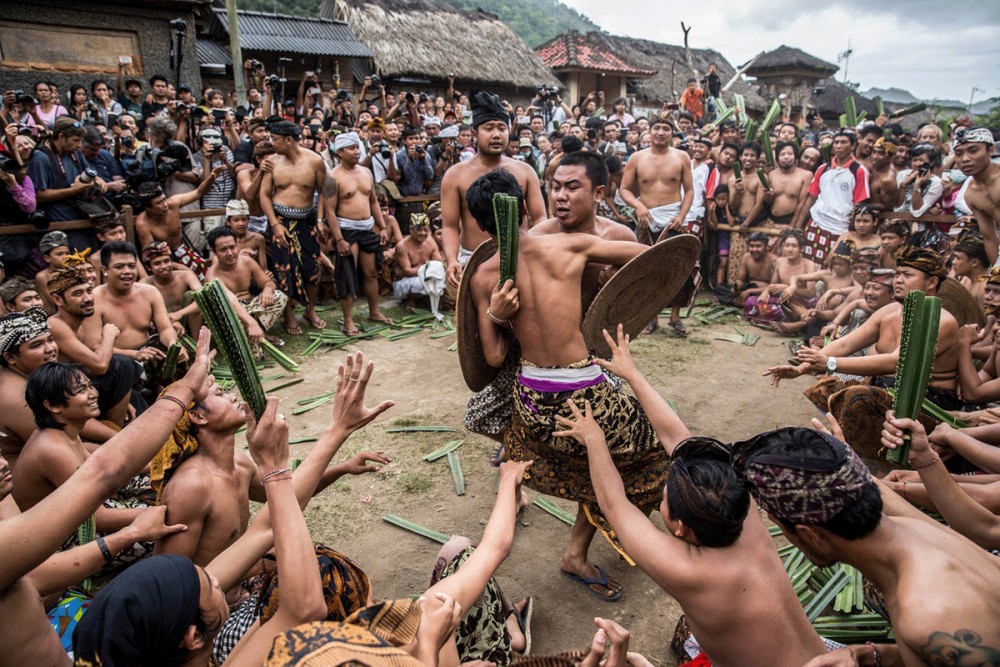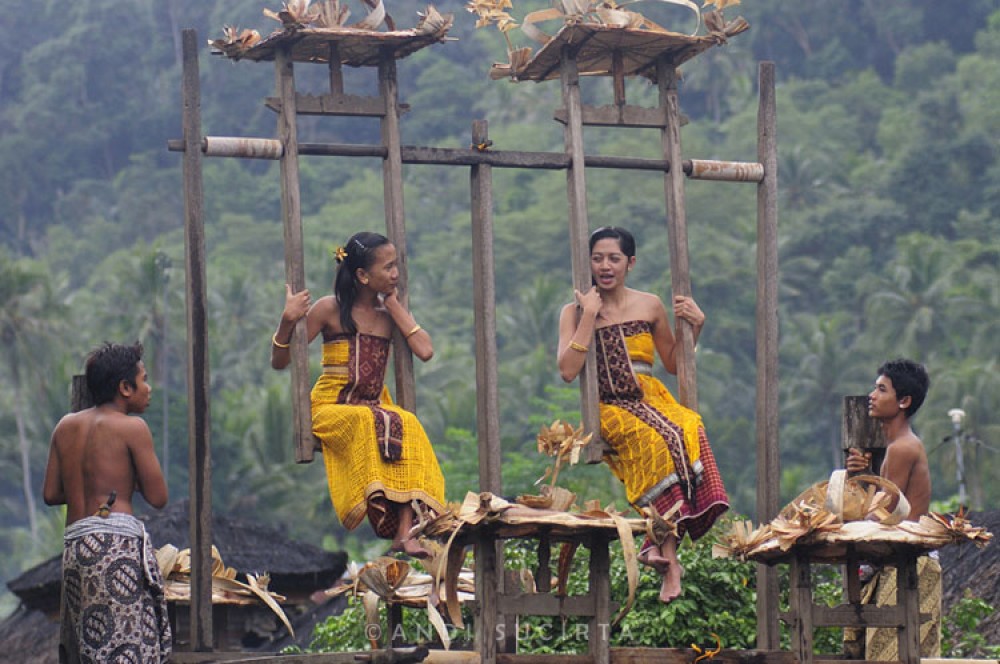Tenganan village in Karangasem regency, 60 kilometers
east of Denpasar, stands in stark contrast to the crowded areas of Kuta or
Legian as it offers a different cultural insight into Bali. Since its establishment in the eighth century, as
estimated by experts, Tenganan has preserved the traditional Balinese culture
of Bali Aga. Gender equality has always delineated the caste system of the
secluded village.
1.Cultural Customs Ever since a fire in 1841, customary cultural guidelines
have been derived from memory — some rules are written, some are not, Nyoman
explained. Ruling systems, land rights, natural resource rights and usage,
marriage, education and traditional ceremonies have their own rules in
Tenganan.In terms of marital rules, polygamy and divorce are
strictly prohibited. The village observes endogamy, in which its people are
bound by awig-awig (customary law) that obligates them to marry only
Tenganan-blooded individuals. The Karangasem administration website notes that
those who violate the rule will be exiled from the village.
Ever since a fire in 1841, customary cultural guidelines
have been derived from memory — some rules are written, some are not, Nyoman
explained. Ruling systems, land rights, natural resource rights and usage,
marriage, education and traditional ceremonies have their own rules in
Tenganan.In terms of marital rules, polygamy and divorce are
strictly prohibited. The village observes endogamy, in which its people are
bound by awig-awig (customary law) that obligates them to marry only
Tenganan-blooded individuals. The Karangasem administration website notes that
those who violate the rule will be exiled from the village.
2.Gender Equality Amid its traditional customs, in terms of gender
Tenganan’s culture is free from inequality. Women and men stand with equal power
and uphold corresponding rights to become heirs. This sets them apart from the
familial system followed by the general public in Bali. “Tenganan village is one of the oldest villages, yet it's
modern,” Nyoman said.The ruling system of the village is also divided in two:
an administrative system led by a village chief and a customary cultural system
led by six married couples.
Amid its traditional customs, in terms of gender
Tenganan’s culture is free from inequality. Women and men stand with equal power
and uphold corresponding rights to become heirs. This sets them apart from the
familial system followed by the general public in Bali. “Tenganan village is one of the oldest villages, yet it's
modern,” Nyoman said.The ruling system of the village is also divided in two:
an administrative system led by a village chief and a customary cultural system
led by six married couples.
Read more on
www.thejakartapost.com